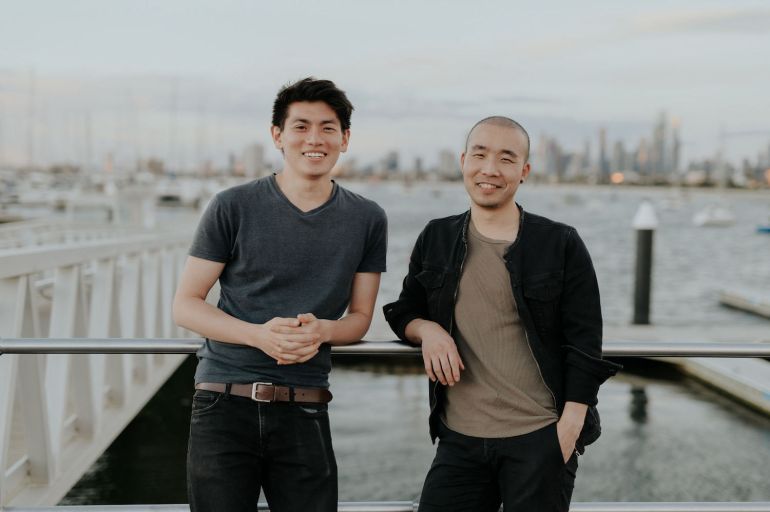To have his short film Jia selected for the Melbourne International Film Festival (MIFF), in addition to being accepted into the festival’s Accelerator Lab, which boasts alumni such as Taika Waititi, David Michod, Justin Kurzel and Sophie Hyde, is a “dream come true” for writer/director Vee Shi.
Jia follows Ming, a grieving Chinese mother, who arrives in Australia to embark on a road trip with a young Caucasian man, Eric, to remember her late son. She soon discovers that Eric was in a romantic relationship with her son, which clashes with her conservative values.
The short was the winning project of AACTA’s inaugural Pitch: Focus development and production initiative, held in partnership with Sony, which challenges student filmmakers to form teams and pitch an original production.
Winning the comp has paved the way for many opportunities for Shi, in addition to the MIFF selection. For one, it helped to secure him an associate producer position through VicScreen’s Key Talent Company Placement with Michael McMahon’s Big and Little Films. He’s since transitioned into a development executive.
Shi is also one of the participants in Co-Curious’s Stories From Another Australia initiative, which aims accelerate the careers of writers from culturally and linguistically diverse and other under-represented backgrounds.
Further, Jia was also included in Flickerfest’s official program, winning with Shi winning Best Direction in an Australian Short Film, while Sel Hiew, who plays Ming, received a special mention from the jury.
“Seeing diverse audiences resonate with Jia and then to be recognised with the Best Direction award at Flickerfest, considering the amazing films we were up against, has been both incredibly gratifying and reassuring for me as a filmmaker. It’s a reminder that despite our unique backgrounds, there are universal truths in our experiences that bind us together,” Shi tells IF.
Shi produced Jia with Nicholson Ren, who was also the short’s cinematographer. The pair first met while working on a VCA student film in 2017. Finding they had a similar taste in cinema, they’ve since worked on a number of projects together, including spec ads and small commercials and shorts.
AACTA Pitch: Focus required them to turn a one-paragraph synopsis for Jia into a fleshed out concept in 12 days, including a pitch video. After then being selected for the next round, which included the top entries, they had to put together a pitch deck, 10 pages of screenplay and a production budget within two weeks. The third round, narrowed down to five teams, then involved shooting a three-minute proof of concept.
After winning the initiative, Shi and Ren received $15,000 and a suite of complementary film equipment from Sony in order to bring Jia to life.
“The different stages of the competition truly pushed us to develop the original concept into something specific to Victoria and achievable within the given budget,” Shi says.
“I took a four-day road trip to pick out the most cinematic locations to assist with the redraft. The three-minute proof of concept helped us refine our cinematic style. Knowing that we would have no access to power on the road, we used only natural lighting for the entire film and scheduled scenes and the directions we were facing according to the sun.
“This approach helped create a more naturalistic look that complements the narrative and renders the portrayal of grief and emotion more authentically.“
The most beneficial aspect of the competition for Shi was receiving notes on the script and the rough cuts from competition judges Charles Williams and Leanne Tonkes, as well as McMahon and Tony Ayres via his work at Big and Little Films.
The hope now is to turn Jia into a feature film, and Shi and Ren also have three low-fi sci-fi TV series in development, including a queer sci-fi series pitched for SBS Digital Originals this year. They are also researching a Chinese mythology-inspired magical realism feature film. Ren is also looking at entering the AACTA: Pitch competition with Monster Pictures, which supports horror feature ideas.
They’ll also enter Jia into the AACTA Awards for this year, while continuing the film’s festival run.
“We’re hoping to bring Jia to more festivals around the world next year and champion Melbourne as a hub for diverse storytelling and filmmaking,” says Ren. ‘
Applications are open now for AACTA: Pitch Focus for 2023. Shi’s advice to those who want to apply is to always consider the production cost when writing your script and make sure to have a detailed breakdown of your production budget.
“Being specific is crucial – know how you’re going to shoot it and how much it will cost. Also, don’t wait until you’re selected for the next round to start planning. Begin as soon as possible, especially with the proof of concept video, as the turnaround time can be tight,” he says.
This year, in addition to a $15,000 production fund, Sony will loan up to $20,000 in equipment to the winner. Initial entry requirements include: title, logline, 500 word synopsis, 3 minute pitch video, and résumés of the team members.
Round one entries close 9:00AM AEST Monday August 14. Apply here.


